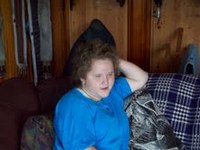As some readers know, I had the privilege of getting to know my mother-in-law as she battled terminal cancer a few years ago. She died on September 11, 2003, so this time of year often brings me back to the “thin place” of suffering and beauty, of joy and sorrow, of reconciliation and tearing apart, that came as she passed form this world. Many of my thoughts about the hope that comes in the face of death are contained in my book, Penelope Ayers. To read excerpts or hear me reading a few clips, click here.
My grandfather turned 90 last week. The past two years have been ones of declining health for him, including a botched surgery and shingles and Bell’s palsy and a broken hip. A few months ago, my mother sat down to talk with him about reaching the end of his life. She relayed the conversation to me.
“Dad, are you sad?”
He seemed puzzled. “No. I’m not sad. I’m just tired.”
“Are you sure? Maybe you’re worried?”
“No, I’m not worried.”
“Well, how are you feeling about death and the whole dying process?”
“Dying is much harder for the people around you than it is for the person dying. I’m looking forward to heaven. It should be exciting. New things always are.”
My mother doesn’t live with her parents, although she visits frequently. She and her sister (and, to a lesser extent, her two brothers who live farther away) help make decisions about their care. At age 88, my grandmother has been able to provide a great deal of support for her husband, and they hired a woman to help with his physical care once my grandmother couldn’t provide it on her own. A similar family drama is being played out across the nation. According to the Family Caregiver Alliance, women compose the majority of caregivers for the elderly and terminally ill patients.
Americans have a hard time talking about the end of life. As Atul Gawande wrote recently inThe New Yorker, in “Letting Go,” the church in previous centuries offered ways for individuals and their families to prepare for death. But in a secularized culture with increasing life expectancy and medical technologies that prolong life, we have generally lost the ability to talk about an irrefutable fact: We will all die. Idolatry of life has led to a place — medically, culturally, even within the church — where death has become taboo.


